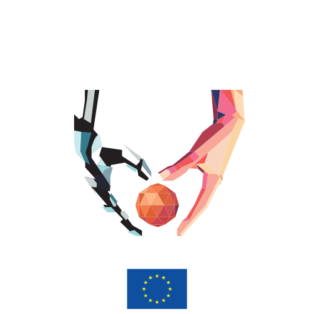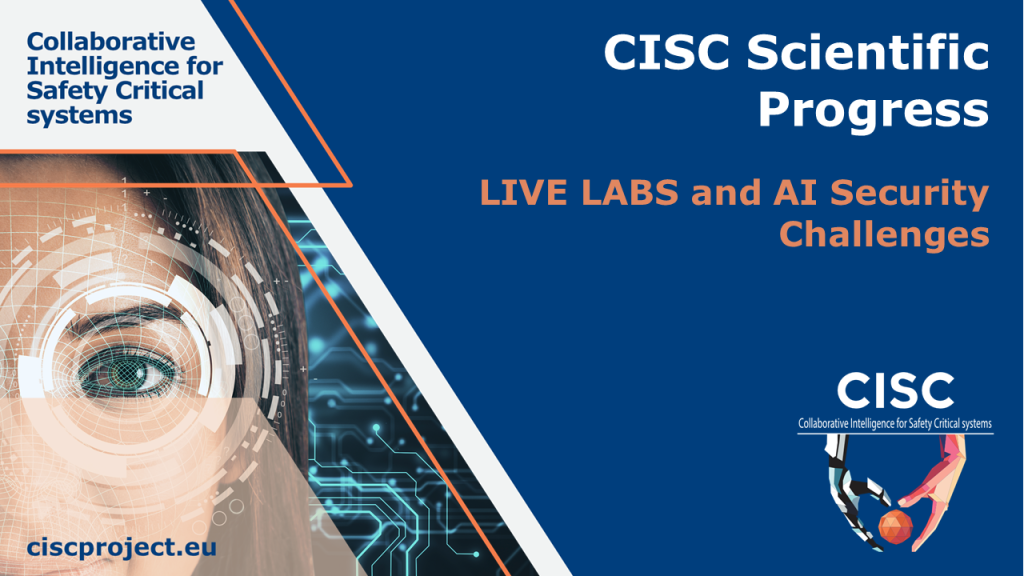LIVE LAB 1 Collaborative robotics: State of the art industrial engineering lab for Collaborative robotics and automation in IMR a group of 20-25 robotics and automation companies from across Ireland engage together. Currently, ESRs are developing techniques for human robot collaboration by learning from demonstration. Human-in-the-loop control architecture and learning from demonstration can reduce installation time and increase robustness to modelling errors resulting in an improvement of the productivity of a cell. The proposed approach attempts to increase robustness of the learned model or make it less susceptible to the perturbation and make the algorithms intrinsically safe. Moreover, ESRs are exploring the possibility to employ Haptic technology. This, to simulate operator conditions in a kinaesthetic communication that allows to create an experience of touch by applying forces, artificial motions or vibrations to the user. This will help to study how to enhance the remote control of machines and devices that are more commonly found in industry.
LIVE LAB 2 Mental Workload in workstations: Industrial sectors where production systems are based on assembly lines that require a cross interaction between highly automated workstations and highly trained human resources. The ESRs here are testing human-in-the–loop-automation performance in the context of different workstations. The ESRs are developing near real-time mental workload estimation using Electroencephalogram (EEG) systems between MBrainTrain and FINK. For this purpose, Machine Learning algorithms are being implemented. The process consists of setting up an experiment to asses a set of measurable capabilities for the Human-automation interaction such as Manual skills, Memory and Physical skill. The data collected will be labelled and processed to build the final ML model that allows the mental workload estimation. The tests must represent or simulate frequent operations close to the ones performed in the assembly line. The ESR at UMIL is studying ML techniques that allow predicting candidates with high likelihood of being simultaneously associated with two related diseases by exploiting the information contained in cellular networks. The developed techniques can then be applied to analyse EEG data sets for emotion recognition.
LIVE LAB 3 Alarm management: Application of methods for improvement of alarm management practices are being developed by ESRs together with YOKOGAWA UK, TU Dublin and POLITO. The latest has been provided training on Distributed Control System (DCS), component parts, what it looks like and what it does. With reference to the Yokogawa Centum and Pro-Safe systems on Cygnus. Furthermore, YOKOGAWA UK representatives has provided training on Alarm Management concepts and good practice, with reference to the research topic on alarm bursts. The ESRs have had access to samples of ‘real’ data from their process historian offshore (Yokogawa’s ExaQuantum) and alarm data from their CAMS system (the Yokogawa alarm handling system in the DCS). Using methods such as Reinforcement Learning for Alarm Management Agent for DCS or Bayesian Networks (in collaboration SCCH, MATHEMA, HUGIN) can give insights on how the dramatically increased number of alarms in a plant will affect the operators’ workload, poor system performance and in some cases cause fatal accidents. The potential results can be used to improve industrial alarm systems that are crucial for process safety and operational efficiency of modern industrial plants such as oil & gas, chemical, petrochemical and power plants.
Artificial Intelligence methodologies and Security challenges: ESR at DIGITALSME will be studying the perception and attitudes towards the application of ethical and legal frameworks by AI practitioners in European Small and Medium Enterprises (SMEs). The findings will be compared with the attitudes found in larger technology companies and open the discussion about whether European AI SMEs can be referred to as one homogeneous group when it comes to perception around AI ethics and its implementation. Moreover, the research will study what influences ethical considerations and application among European SMEs as well as the values, techniques, organizational design regarding AI Ethics and Regulation. The analysis of policy document corpus will be adopted to highlight which values, approaches & options characterise the “European Approach”. The analysis will be supported by small industry focus groups for uncovering key themes and debates within Regulation & Trustworthy AI for SMEs will be organised. To complement the collected information, larger scale data collection from AI/ML practitioners in SME, on implementing trustworthy AI & reception of AI regulation is planned to be carried out later on this project.

